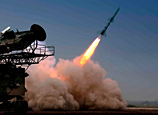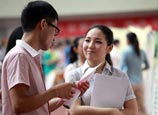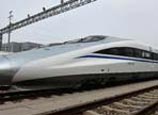
Economy still making steady progress, premier tells think tank delegates
China is capable of meeting its economic growth target of 7.5 percent this year, Premier Li Keqiang said on Friday in his first public speech since the country's stock market plunged earlier this week.
Some economists had feared the growth rate could deteriorate in the second half of the year and that the world's second-largest economy may fall short of its growth target.
The economy is still making steady progress, Li said. Not only can China maintain a relatively high long-term growth rate, but it can also improve the economy's quality by making further reforms and allowing the market to play a bigger role, he said.
Meeting representatives attending the Third Global Think Tank Summit in Beijing, Li said, "China's economic growth is on a steady track. China has the conditions and the capability to reach the major goals the Chinese government set for economic growth this year."
Last year, the economy grew at its slowest pace for 13 years and growth slipped to 7.7 percent in the first quarter of this year, down from 7.9 percent the previous quarter.
But Li said, "Practically, China's economic growth is already comparatively high" compared with the world average.
A high growth rate cannot be China's single emphasis. The nation is aiming for both steady growth and the economy's "long-term health", the premier added.
"China will continue to further its opening-up policy and to deepen its reform initiatives to achieve long-term, sustainable and healthy development and to address the structural problem in the economy," Li said.
At the opening of the summit on Friday, Vice-President Li Yuanchao said it is a critical time for China to press ahead with economic reforms, and only by doing so can it enjoy more-balanced and sustainable growth. In the next few years, the nation is still capable of maintaining an average GDP growth rate of around 7 percent, he said.
Governor of the People's Bank of China, Zhou Xiaochuan, said China's economic growth has slowed but is still within a reasonable range.
For years, China's rapid economic growth has been powered by strong exports of labor-intensive goods and by heavy domestic investment. But while global demand remains weak amid the European debt crisis, and China suffers from excessive industrial output and bad loans in the banks, the country is looking to expand domestic consumption.
During the past three months, the new government leadership has resisted repeated calls for new stimulus measures.
Huang Yiping, chief economist in China with Barclays Capital, described the economic policy framework of the cabinet, led by Li Keqiang, as "no stimulus, de-leveraging and structural reform". These are key components of what Huang calls "Li-Eonomics".
"We think Li-Economics is exactly what China needs to put its economy on a sustainable path, which we estimate is around 6 to 8 percent annual growth for the next 10 years," Huang said.
During the past three and a half months, the State Council has made a series of efforts to curtail government approval power, streamline administration, and delegate power to lower-level governments.
















 Mom makes target weight to donate kidney to son
Mom makes target weight to donate kidney to son


![]()
